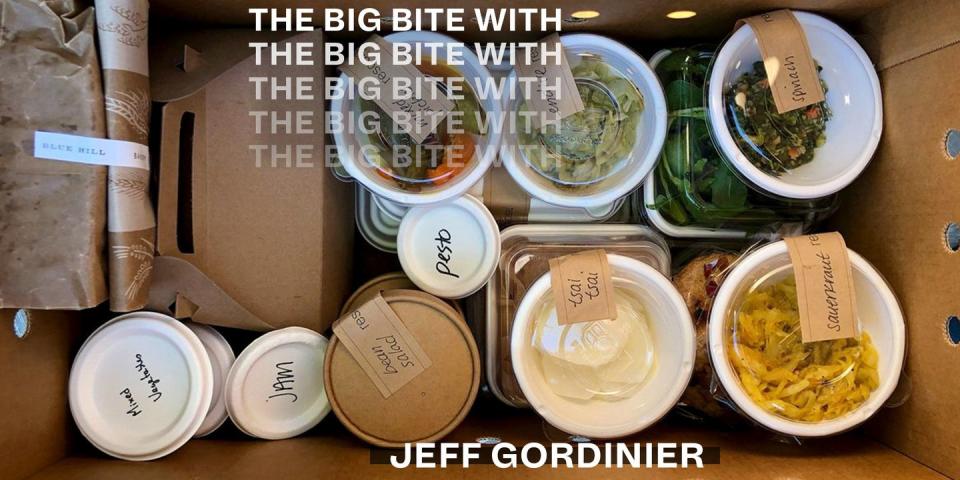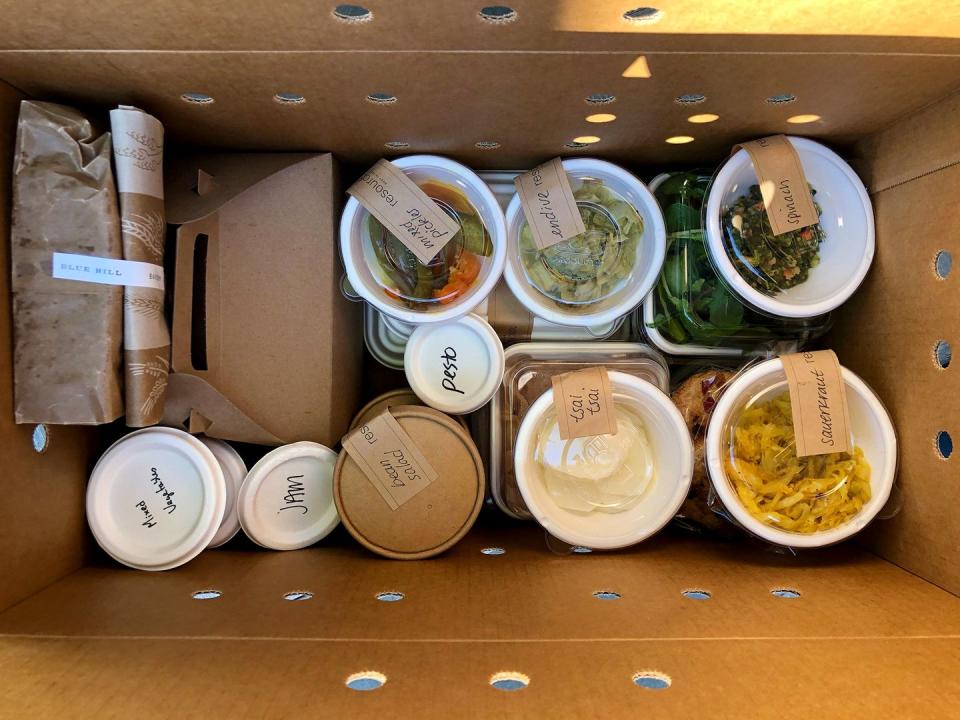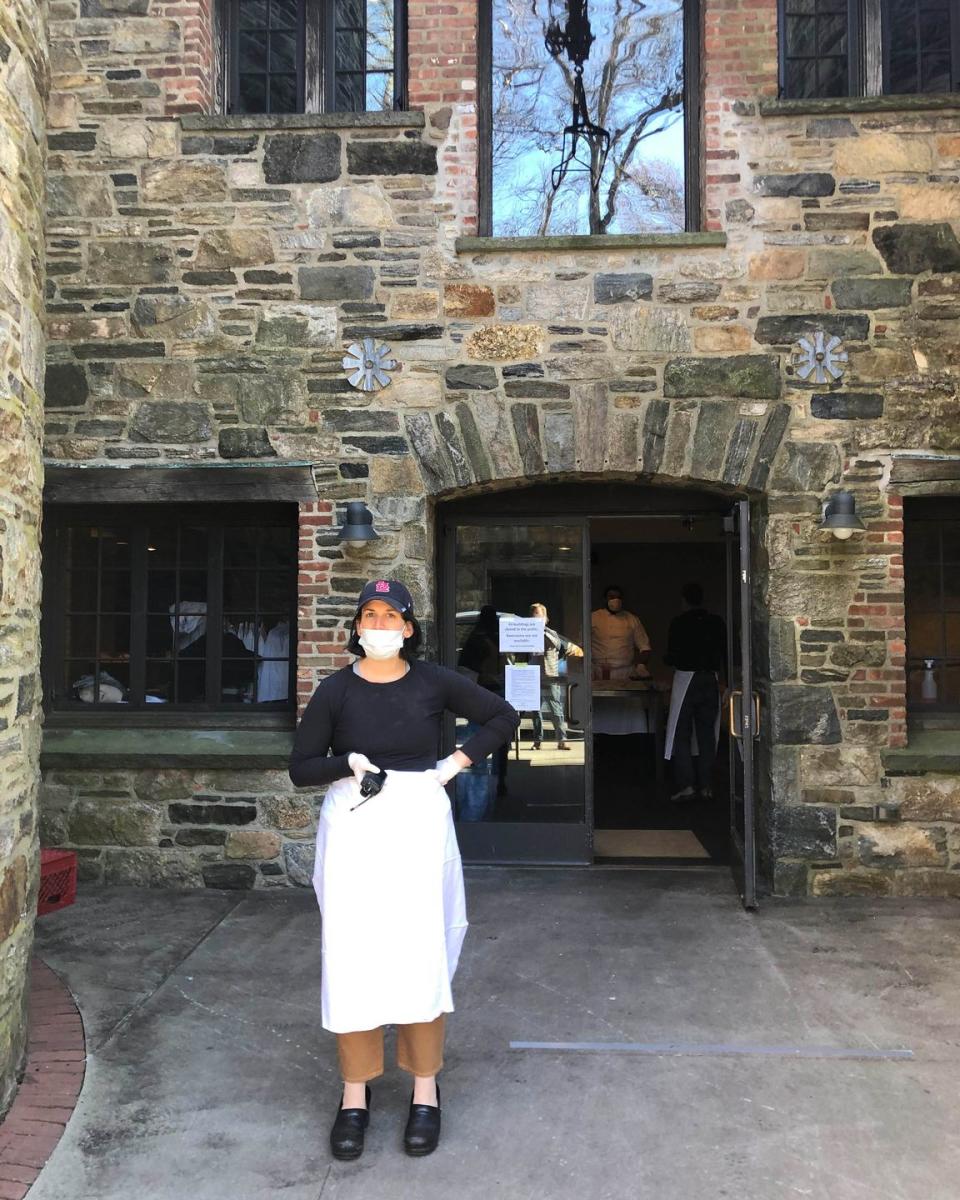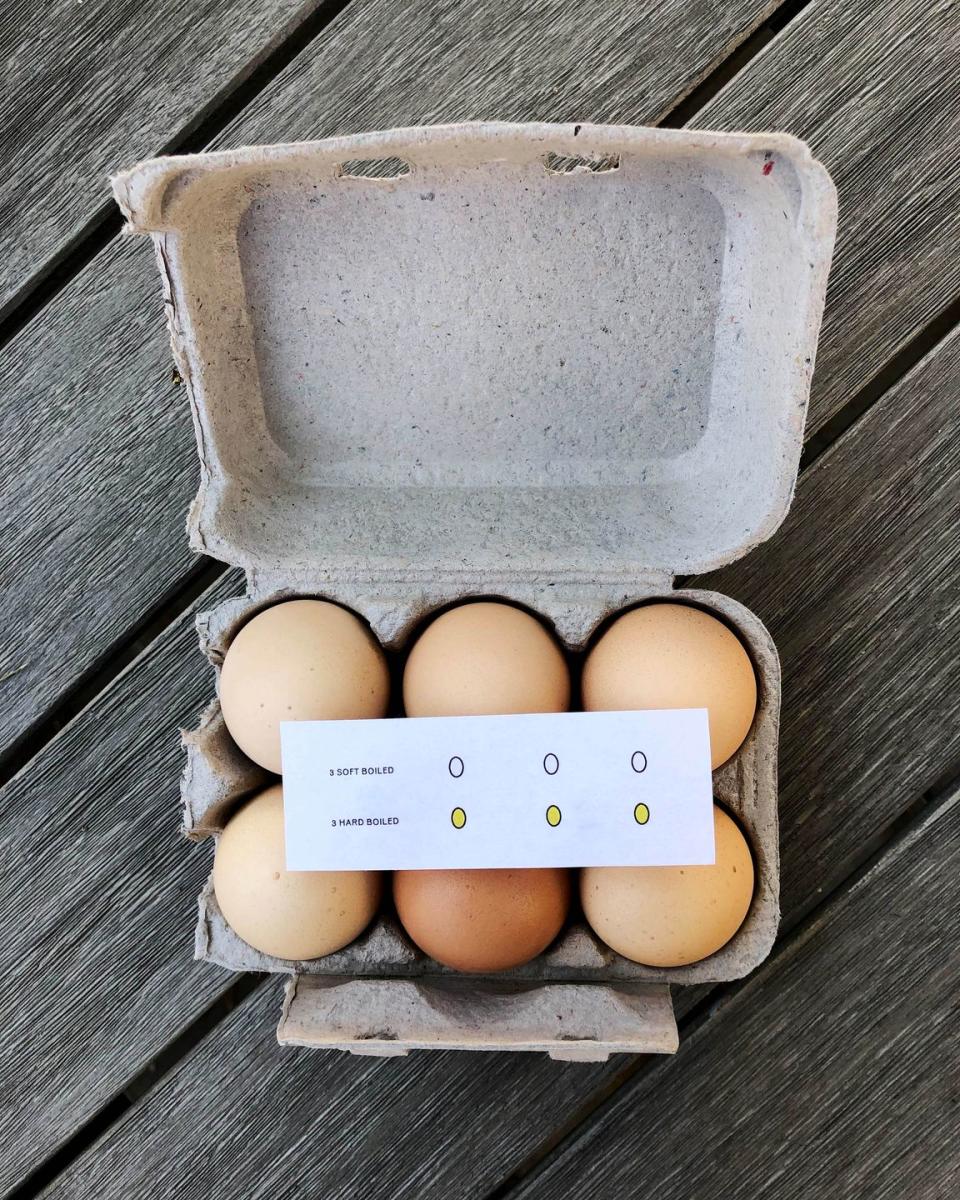Michelin-Star Restaurants Are Still Finding Ways to Make Us Feel Grateful

If we’re talking about dining experiences with two Michelin stars, I guess it wasn’t what we had expected.
When my wife and I sat down at our table, we noticed that the two previous guests had left rigatoni and red sauce all over the floor, and they still appeared to be screaming like maniacs in a room upstairs. The table itself was crowded with junk — newspapers, magazines, phone bills. There were two nice candles, yes, but no one had remembered to light them, and they squatted next to a yellow tub of Lysol wipes that the busboy had neglected to remove.
Oh, also, I had to do the cooking.
I should probably point out that all of this was happening in our own home kitchen. The unruly diners who had preceded us? Our toddler twins.

The coronavirus pandemic has, as you know, annihilated the American hospitality business, forcing tens of thousands of restaurants and bars to shut down indefinitely and leaving a scattered few struggling to tread water with takeout and delivery. Some of the most gastronomically ambitious spots around the country—places like Zahav in Philadelphia, Pasjoli in Los Angeles, and Canlis in Seattle—now offer dinner in a box.
My wife and I happen to live a few minutes away from one of these places, Blue Hill at Stone Barns, which bears two Michelin stars and is frequently named one of the best restaurants in the world. So when I heard that Blue Hill at Stone Barns was selling assemble-your-own hot pots for $50, I went online and ordered one for my wife and me. I figured we could make a quarantine date night out of it. I suppose something like that could be seen as a pointless indulgence as a disease ravages the world. But restaurants aren’t mere places to eat and drink. Restaurants are like coral reefs—ecosystems that allow other life forms to flourish.
Consider an operation like Stone Barns and all the farmers it buys stuff from. “The boxes were created to support the employees we’ve retained,” chef Dan Barber told me. “But more than that — as if that’s not enough — is to soak up what’s coming from farmers that we have exclusive relationships with. Eben Proft produces 70 pheasants for us a week — we contracted with him last year to raise them, and we asked in return for an exclusive — and we can’t really turn that spigot off without putting him out of business. That’s true of a lot of farmers. We ask for exclusive relationships, so if we don’t honor that now they will go out of business.”
I had to select a time slot for picking up my meal box, and I had to provide my car’s license plate number, presumably for the purpose of verification. On Friday afternoon I drove over to Stone Barns, which is situated on rolling pastures that look like Alice Waters’ vision of heaven as painted by Andrew Wyeth. I met a person with a black pen and a list of names at the entrance, then a person with a clipboard at a guard station, then a person holding a walkie-talkie in white surgical gloves next to the table where I grabbed my box. All of these people were wearing masks.

Barber later told me that these days it takes ten minutes just to check in each employee at Stone Barns. “We start with a hand-washing, sanitizing routine,” he said. “Then a questionnaire — how do you feel? anyone at your home not feeling well? Then a wipe-down of bags and computers and cell phones, and a makeshift changing room. So before any of the cooks or box-packers even enter the four walls of the space, there’s an intense routine to stick to. And then moving around the kitchen — keeping six feet apart, wiping surfaces constantly —it all slows everything down exponentially. But we want the team to feel that their health and safety are paramount.” Glitches are inevitable. The printer for the box labels fritzes out; too many cars line up for the boxes at the same time. “It’s like whack-a-mole,” Barber told me. “Every hour a new obstacle. What I’ve found so interesting — inspiring beyond words — is how nothing seems to faze anyone on the team. It’s fascinating. They’re like soldiers in the trenches. Lots of decisive actions to solve problems.”
Once I had picked it up, I placed my dinner box in the front passenger seat, switched on the air conditioner to keep the contents of the box cool, and drove home. (Such is the demand that Barber and his team are now also selling bread boxes and meat boxes, and the price of the hot pot box has gone up to $150. Barber told me that that price won’t bring him a profit, but it helps cover food costs “with room left for our workers.”)
One of the hallmarks of a celebrated culinary destination like Blue Hill at Stone Barns — as with Noma in Denmark, Osteria Francescana in Italy, Atelier Crenn in San Francisco, Arzak in Spain, Eleven Madison Park in New York City, and all the rest — is a kind of lavish yet impish creativity. You spend a fortune at these restaurants not just for delicious food and dexterous hospitality, but for the surprises, the oh wows, the clever little flourishes of plating and presentation.
The trench soldiers at Stone Barns had squeezed all of that oh wow into the box, whose elements had been designed by Laureen Barber, the design director of Blue Hill at Stone Barns and a co-owner with Dan Barber, her brother-in-law.
When I opened mine, I found each ingredient for the hot pot — julienned vegetables, foraged pesto, strips of pastrami made with grass-fed beef, braised endive, sauerkraut, boiled potatoes, boiled eggs — neatly marked and stored in individual cups. The Barbers and their crew had included a large paper menu, of sorts, instructing me how to build the soup for our date night, assuring me that cleanliness had been a top priority every step of the way, and explaining why Stone Barns had given the box an auspicious name.
“This box is called The Restaurant, an ode to the restorative broth for which the first restaurant was named,” the menu said. “It turns out that a restaurant was a thing to eat before it was a place to go — and now that we have temporarily closed Blue Hill, we are bringing the restaurant to you.”

It looked complicated, at first glance, but MacGyvering the hot pot turned out to be a breeze. I warmed up the chicken and turmeric broth in a pot. Meanwhile, Lauren and I opened all the cups and chose which of the vegetables and meats we wanted — that was simple: all of them — and piled those components in our bowls. We ladled the broth on top of the meat and vegetables, just like they do in Michelin-starred restaurants, and then we cracked open the soft-boiled eggs and stirred those into the broth to thicken it.
If you had blindfolded me, and hadn’t told me in advance that the soup and its ingredients had come from Blue Hill at Stone Barns, I would have been able to guess. Great restaurants have a distinctive taste, the way great bands have a distinctive sound. This was a soup so dense with flavor that you felt compelled to eat it with a fork. Each bite yielded a new rush of pleasure: creamy fat from thin slices of charcuterie, bright funk from the pickles, and springtime grassiness from the pesto, which had been made from dandelion greens, watercress, squash seeds, and a wild plant called shepherd’s purse. A meal at Blue Hill at Stone Barns might be described as tasting both clean and dirty: clean in the sense that you can pick out the flavor of each ingredient with sharp, isolated clarity, and dirty in the sense that you feel a lot closer to actual soil than you’d get during a regular meal. It’s as though your nostrils are right next to the furrows of a field. This was true even with our date-night dinner in a box.
Lauren and I missed the hum of a busy dining room, yeah, and we missed that huge cathartic sigh of relief that parents exhale when they’re granted a few hours to put the offspring in the care of a babysitter so that they can (imagine) leave the house. But, hey, we can’t leave the house. So within the context of the weird world of quarantining, I’d say we felt waves of gratitude for the care that Blue Hill at Stone Barns had put into the box. Dexterous hospitality takes on many forms. We had rice pudding for dessert, along with two cookies, plus yogurt and Hudson Valley apples for breakfast the next morning and even hard-boiled eggs for the subsequent lunch. Not a bad deal for fifty bucks. (Or three times that, even.) It’s Monday now and we have eaten it all. I didn’t want a speck to go to waste.
You Might Also Like

